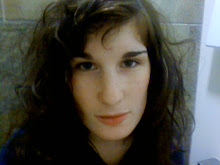
Something that seems relevant to this disturbance of perception and the subsequent destabilization of subjective experience in thinking about auto-poesis specifically is the idea of readers becoming authors that we have read about and I have written about before. In many forms of collaborative (frequently digitally transmitted) writing, as well as the auto-poesis discussed here in multiple but converging contexts, the reader becomes the author. This is true to the extent that a collaborative, public form such as Wiki relies on readers to write the information which is then viewable to anyone surfing the web that can read the text and edit or re-write it as they see fit. In the context of auto-poesis, the reader becomes the author in a sense because the lack of an actual author who is constructing sentences with some degree of intent, with a larger construction of meaning that each sentence construction arches towards, means that the only meaning being salvaged from the automated text is being inferred by the reader who takes on the authorial responsibility “of the creative bringing into being of the text.” Thus, when a text lacks an independent author, a disassociation is brought about between writing and meaning, and the reader takes on the work of straddling that gap and forging connections, building bridges, constructing meaning.
This strikes me as intrinsically important to the question of how value is ascribed to novelty that the text aims to investigate. The independent creativity of the author in an auto-poetic text is absent, so the text only becomes “authored” by the independent schemata and connections that can be forged by readers that encounter it. Additionally, the “juxtaposition of existing elements and understandings” is important to the reader’s ability to actually engage the text, for the text to be accessible and relatable, and to that extent novelty actually disengages what Biggs refers to as the “internal voice that arises in the reader.” I think most of my favorite writers (Kathy Acker, Jeanette Winterson, Haruki Murakami, Carole Maso, Margaret Atwood) use novelty very effectively and subversively. Atwood: “you fit into me like a hook into an eye/a fish hook/an open eye.” Immediately upon hearing or reading this first line we think of a hook and an eye, on a dress, perhaps, two pieces which fit into one another and only one another; we think this is a romantic poem, this is about a union, but then our immediate reading explodes as the images when linked before romantically are revealed to be two very different and unpleasant things, and what was originally a sensual, romantic simile is now an awful, striking assault, really. That is how it feels when you realize how your own perception has been manipulated. This poem is about pain, about rape, about the disturbing conflation of love and violence that permeates the history of sex. This to me illustrates, however, not necessarily the merits of auto-poesis as much as the power available in the disturbance of perception; the appropriation of existing understandings to, as Acker so evocatively stated, “slash apart the repressing machine at the level of the signified.” Yes.

yes.
ReplyDelete